Government
Speech by the Governor of Tokyo, Koike Yuriko, at the Second Extraordinary Session of the Tokyo Metropolitan Assembly, 2020
In opening the second extraordinary session of the Tokyo Metropolitan Assembly in 2020, I would like to speak about our response to the novel coronavirus disease (COVID-19) and other matters.
On June 5, Tokyo Honorable Citizen Mr. Kawasaki Tomisaku passed away. I would like to offer my sincere condolences to his family. May he rest in peace.
Extensive damage has been brought upon the Kyushu and Chubu regions and throughout Japan due to torrential rain. Along with extending my deepest condolences to the families of those that passed away, I would also like to offer my heartfelt sympathies to all those who suffered damages.
The Tokyo Metropolitan Government (TMG) sent ready-to-use (liquid) baby formula to Hitoyoshi City, Kumamoto Prefecture in the Kyushu region and dispatched officials to Nagano Prefecture in the Chubu region. We will continue to carry out necessary support based on requests from those localities.
Even here in Tokyo, we don’t know when meteorological disasters will strike as we make our way through the rainy season and typhoon season. From the standpoint of avoiding a compound disaster in the midst of the COVID-19 pandemic as well, we will steadfastly make preparations while cooperating with local municipalities.
1. Advancing COVID-19 response through three approaches
Regarding COVID-19, based on expert analyses from our newly established monitoring panel, we will take versatile measures to respond as needed to the spread of the virus.
It was under these conditions that we issued a “warning that COVID-19 is spreading” two days ago. Through new monitoring activities conducted under the two categories, “infection situation” and “system for the provision of health care,” the panel of experts commented that “it is believed that the infection is spreading,” and on the analysis of the system for health care, that “it is believed that the system must be built up.”
The number of new positive cases has been trending at a high level, with us also recently seeing days with cases surpassing 200. We expect that this number will rise even more as we substantially increase the number of tests administered to control the spread of infection, so we should keep an even closer watch over the situation.
Although young people make up many of the cases, the infection is spreading among other age groups, with those in their 60s and older now accounting for around 10 percent of all cases. If the virus spreads even more among the elderly and those with underlying conditions, the healthcare system could suddenly become strained. We must maintain a strong sense of crisis and while also considering the opinions of experts, the TMG will take preemptive steps based on these three approaches.
The first approach is controlling the spread of infection through an aggressive expansion of testing. Under the current testing system, we can administer up to around 6,500 tests per day. We will further expand our testing capacity to 10,000 tests per day through, among others, support for the introduction of the latest testing equipment and collaboration with university hospitals. We will especially encourage employees at eating and drinking establishments with host/hostess services to actively take tests, and also support public health centers whose work has increased due to more testing. Tokyo will thus try to prevent the spread of infection by identifying people infected with COVID-19 at an early stage.
Concerning the health care provision system, which plays a pivotal role in COVID-19 response, the number of hospitalized patients is projected to rise while that of serious patients remains at a low level. Against this backdrop, we are proceeding with preparations to expand the number of beds for moderate patients to 2,700. We will continue to take all possible measures, including the opening of two new designated hotels for the recovery of patients with no or mild symptoms, to build a system that will allow the people of Tokyo to feel safe.
The second approach is taking focused measures based on the actual circumstances of communities, in addition to common measures taken across Tokyo. To stop the spread of infection in various locations in Tokyo, we must reinforce efforts that match the realities of the local areas. By working together with the public health centers and municipalities, and sharing information and challenges, we will hammer out and advance effective measures.
The third approach is taking detailed measures according to age group and business category. For example, because senior citizens are at high risk of developing severe symptoms, we will ensure that infection prevention measures are thoroughly taken at social welfare facilities and other places. Other detailed response includes efforts taken in cooperation with the municipalities for types of businesses that pose a high risk of infection.
In an effort to further strengthen our ability to respond to infectious diseases, we will advance our preparations for the creation of Tokyo's version of the CDC (Centers for Disease Control and Prevention), which I pledged in my election manifesto. When established, the institution will become the center for the analysis and evaluation of information gathered at the TMG, public health centers, hospitals, and research organizations, respectively; appropriate decision-making in crisis management; and dissemination of information to the residents. By consolidating the functions of the existing Tokyo Metropolitan Institute of Public Health and other organizations, and organically collaborating with national institutions, universities, and the like, the center will further enhance our preparedness against crises. As part of this effort, the TMG is working to strengthen its response, including creation of the post of Director General for Health Crisis Management Promotion and the new Infectious Disease Control Division in the Bureau of Social Welfare and Public Health. We will continue to dynamically push forward measures for the early realization of the center.
2. Accelerating concrete measures based on a supplementary budget
To speed up the implementation of these measures in a concrete way, we have submitted a supplementary budget proposal totaling 313.2 billion yen to this extraordinary session of the Tokyo Metropolitan Assembly. This budget will be mainly financed from national government funds. The supplementary budget is based on four points, namely, measures to prevent the spread of COVID-19, the strengthening and improvement of safety nets to support the residents’ livelihoods and Tokyo’s economic activities, measures to balance infection prevention measures and socioeconomic activities, and measures to promote transformation of social structures to overcome the crisis facing Tokyo.
First, for measures to prevent the spread of infection, nothing is more important than further enhancing support for those fighting daily on the frontlines against COVID-19, including healthcare workers and medical institutions. We will provide strong support for those working on the ground through the provision of allowances to those working in the fields of health care, nursing care, and welfare, and through payments to support the business foundation of medical institutions that accepted coronavirus patients. Additionally, we will support measures that will enable organizations, such as medical institutions, pharmacies, and welfare facilities, to continue providing health care and other services while taking preventative measures against the virus. We will also expand subsidies for medical institutions and other facilities that keep empty beds for COVID-19 patients for when they are needed. Moreover, we will launch a new novel coronavirus response council so that we can promote effective measures in partnership with the municipalities. We will thus firmly support measures taken by each of the municipal governments.
Next, toward the strengthening and improvement of safety nets, we will support small and medium-sized enterprises (SMEs) and other business operators that experienced a drop in sales by subsidizing their rent, which is an urgent problem. The TMG will provide its own rental assistance grant that will supplement that offered by the central government, and this will be funded by the recently expanded grants we received from the central government. In addition, we will offer special grants to low-income single-parent households, and strengthen counseling services to help prevent child abuse and domestic violence resulting from such factors as staying at home for an extended period, and suicides caused by job loss and other reasons. Thus, we will support the livelihoods of residents by accommodating their diverse needs.
Regarding balancing infection prevention measures and socioeconomic activities, along with supporting SMEs in their creation of innovation that can meet new demands such as technologies to avoid contact and congestion, we will back their development of new markets through the internet and organization of web-based sightseeing tours in Tokyo. In addition, for the transformation of social structures to overcome the COVID-19 crisis and build a bright future, we will put emphasis on measures that lead Tokyo to “new growth,” including implementation of new employment measures to effectively develop IT personnel who support Tokyo’s growth.
3. Tokyo united as one to overcome this crisis
Meanwhile, we are receiving the tremendous cooperation of the residents and businesses of Tokyo for establishing the “new normal” in this age where we have to live with coronavirus. This includes strictly observing handwashing, keeping a distance from each other, promoting staggered commuting hours and telework, and thoroughly following guidelines for preventing the spread of infection. The Tokyo Metropolitan Government will continue to strategically disseminate accurate information by utilizing various tools to encourage more people to practice new habits that will form the foundation for beating this infectious disease. Especially, in order to carry on with economic and social activities while preventing the spread of infection, I once again strongly urge everyone’s cooperation toward basic measures, such as requesting business operators to take thorough measures to prevent infections in accordance with the guidelines, and asking the residents of Tokyo to look for the COVID-19 safety sticker to avoid stores and other establishments that are not taking adequate steps.
We cannot stop the spread of the disease unless the Tokyo government, our residents and businesses work together to make the new normal take root. I hope that this awareness will be shared widely, and that Tokyo will come together to overcome this difficult situation. I sincerely ask for your continued cooperation.
These requests for cooperation are based on Article 24, paragraph 9 of the Revised Act on Special Measures for Pandemic Influenza and New Infectious Diseases Preparedness and Response, and we strongly urge the central government to amend the Act to increase the effectiveness of these measures.
4. Under the banner of Grand Reform of Tokyo 2.0
In the recent Tokyo gubernatorial election, I received the support of many Tokyo citizens and was elected again to take charge of the Tokyo Metropolitan Government. For the past four years, I have been promoting the Grand Reform of Tokyo through constructive discussions with the members of the Tokyo Metropolitan Assembly, always under the stance of "Tokyo citizens first." I am sobered by the fact that my re-election is a result of this reform being highly evaluated by the people of Tokyo.
The city is a living entity. Amidst drastic changes in the socioeconomic environment, we must not let up on our reforms to create a vibrant city Tokyo where each and every individual shines. So far, Tokyo has enacted a number of new ordinances focusing on people, including an ordinance to prevent passive smoking, which puts the health of the people of Tokyo first, the Respect for Human Rights ordinance, an ordinance to eliminate discrimination against persons with disabilities, and a social firm ordinance. These are symbolic of Tokyo’s administrative services for people to shine, which we have been promoting together with you, the members of this Assembly who represent the Tokyo citizens. While continuing to share the goal of working "for the people of Tokyo,” I am determined to create a vibrant city where everyone can shine.
To that end, we must accelerate measures to address the urgent issue of the novel coronavirus disease, and firmly protect the lives and health of each and every citizen of Tokyo by accelerating measures appropriate for this age where we have to live with the coronavirus. In order to respond to the expectations of the people of Tokyo, we will continue to work hard to defeat the "invisible enemy." Looking ahead to the post coronavirus era, we will promote structural reforms in society and the Tokyo Metropolitan Government, and together with all the citizens of Tokyo, we will carve out a future filled with hope using the Long-Term Plan to be formulated as a compass. This is the Great Reform of Tokyo 2.0 that I am aiming for, which is a further evolution of the past reforms. Under the banner of new reforms, we will work together with the members of the Tokyo Metropolitan Assembly and the people of Tokyo to move forward on a solid path toward the future that we should aim for. The future of Tokyo will be decided with the people of Tokyo. I would like to ask for your understanding and cooperation.
Including the matters to which I have already referred, a total of three bills have been presented to this extraordinary session of the Tokyo Metropolitan Assembly, including two budget bills and one proposed ordinance, to be deliberated among the Assembly members.
This concludes my speech to the Assembly.
Thank you.
This article is also available in other languages. (日本語/中文/한국어)

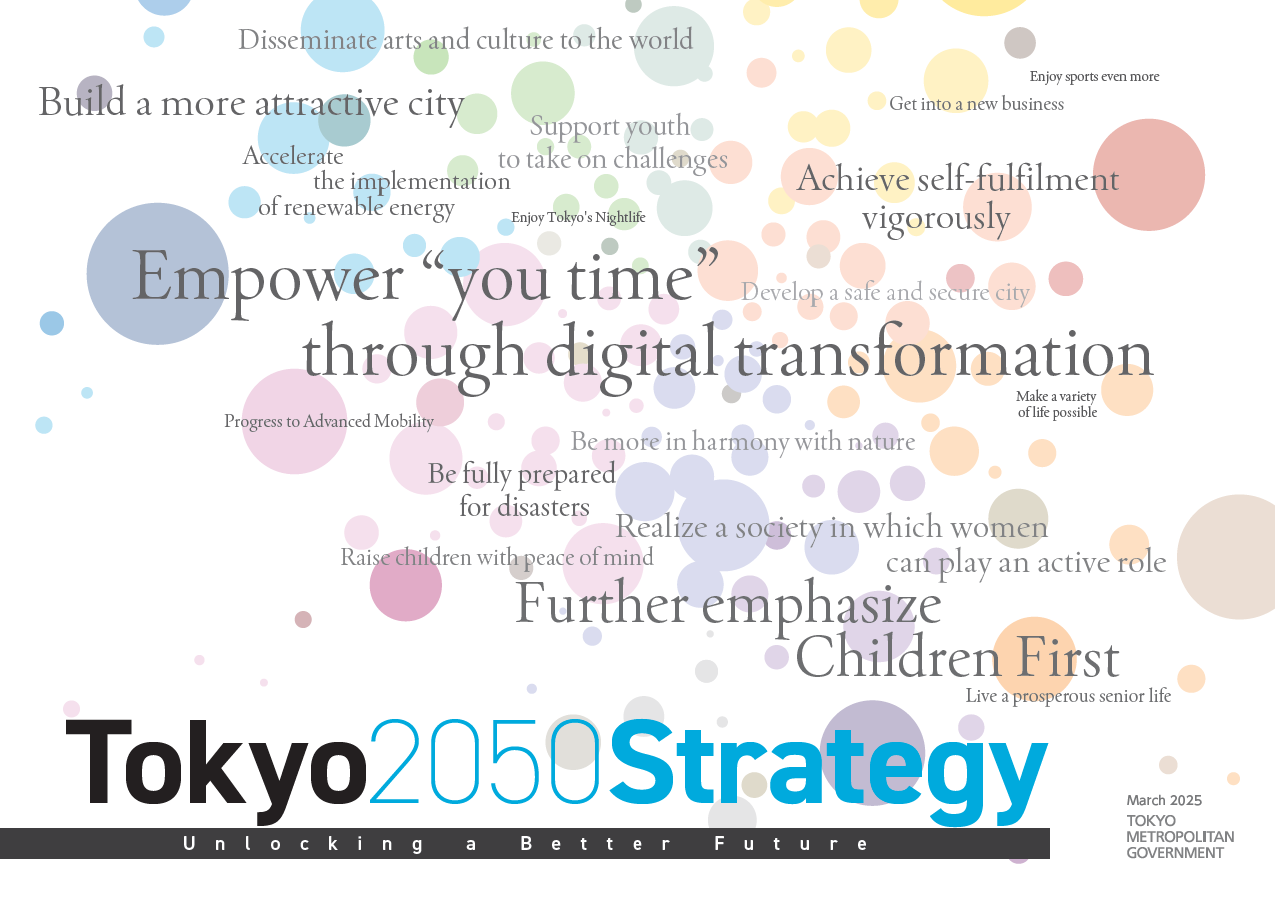
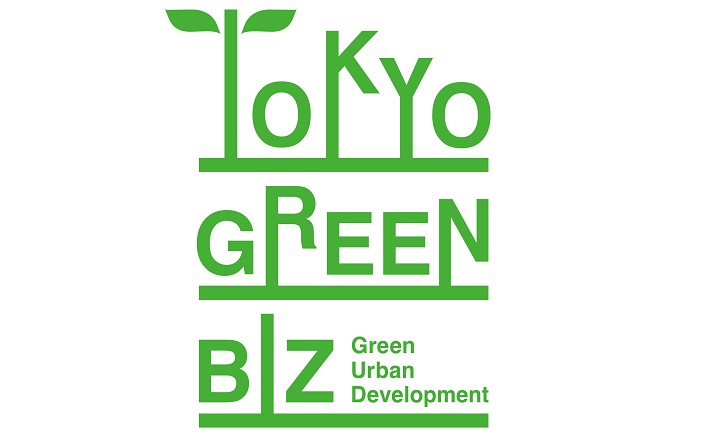
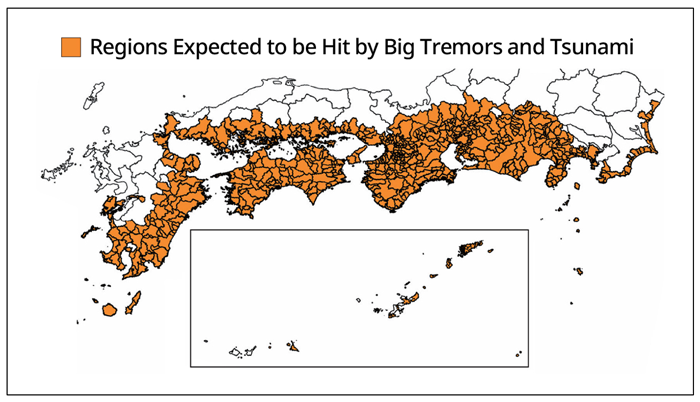

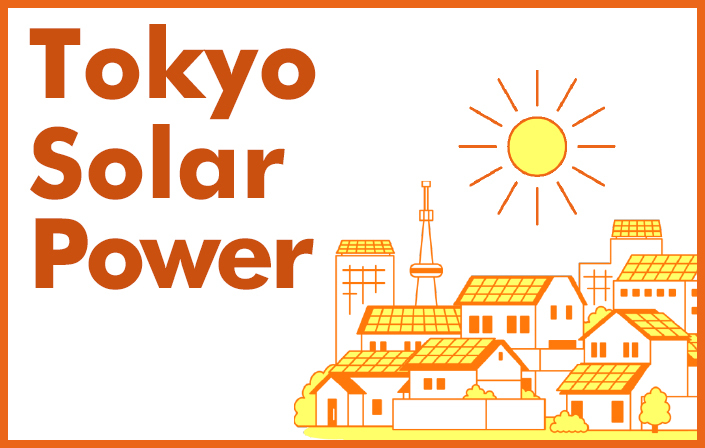
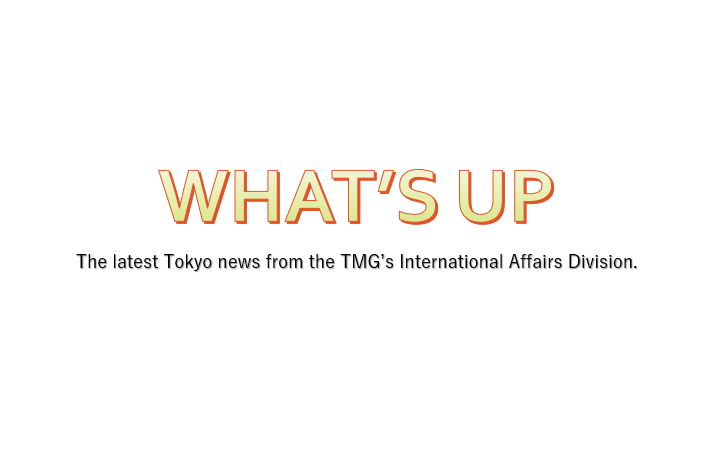
Recommended for You
Govenor Koike Calls for Innovation at FII PRIORITY Asia Summit 2025
December 1, 2025
Tokyo Governor’s Mideast Tour Highlights Multi-City Resilience Efforts and Japanese Capital’s Global Presence
November 27, 2025
Japan-U.S. Leadership Summit Held at UNU in Tokyo
October 10, 2025
Tokyo 2025 Deaflympics Paves the Path to an ‘Inclusive Society’
December 26, 2025
Tokyo 2025 Deaflympics (Part 1): A Leap Towards an ‘Inclusive Society’ with Sign Language
November 12, 2025
Championing Inclusive Growth: OECD and Tokyo’s Shared Vision
November 13, 2025
Call to Action for Hydrogen Use at “HENCA Tokyo 2025”
October 21, 2025
Governor Koike Inspects Hachijojima Island Hit by Typhoons
October 15, 2025
Governor Koike Meets with ICSD President Adam Kosa
November 28, 2025
Governor Koike Attends the Commendation Ceremony for the ‘Tokyo Eco Builders Award’ for FY2025
November 27, 2025